Standards, Procedures and Public Appointments Committee
Standards, Procedures and Public Appointments Committee Annual report 2021-22
IntroductionSPPAS05R06
This report covers the work of the Standards, Procedures and Public Appointments Committee during the Parliamentary year between 13 May 2021 and 12 May 2022.
Membership Changes
Previous Members of the Committee during the reporting year
Paul McLennan (SNP) (17 June 2021 – 25 November 2021)
Alexander Stewart (Con) (17 June 2021 – 23 September 2021)
Elena Whitham (SNP) (1 December 2021 – 24 January 2022)
Tess White (Con) 24 September 2021 - 26 May 2022)
Inquiries and Reports
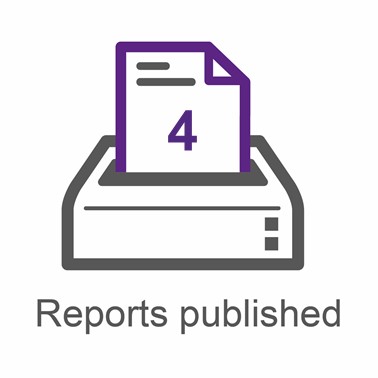
Standing Order rule changes
Under Rules 17.1 and 17.1A of Standing Orders, the Standards, Procedures and Public Appointments Committee (“the Committee”) is responsible for recommending amendments to Standing Orders. If the Parliament agrees these changes, they come into force.
In this parliamentary year, the Parliamentary Bureau identified changes which are required to Standing Orders in relation to a mandatory committee remit and name.
At the beginning of the parliamentary session, the Bureau recommended a Temporary Rule to revise Rule 6.8 which sets out the remit for a Europe and External Relations Committee.
The Committee then recommended that Temporary Rule 4 be extended until a decision had been taken to amend Rule 6.8 or to the date of dissolution, whichever is the earliest.
In addition, a number of miscellaneous changes to Standing Orders were recommended for approval.
These Standing Order rule changes were agreed by the Committee at its meeting on 27 January 2022. The Committee published its report on1 February 2022.
These rule changes were approved by Parliament on 9 February 2022 and came into force on 11 February 2022.
Inquiry into future parliamentary procedures and practices
The Committee held a debate in December 2021 on parliamentary procedures and practices with a specific focus on how debates take place in the Chamber. This Committee debate informed the development of the remit for an inquiry into future parliamentary procedures and practices, which was launched in January 2022.
The Committee agreed to look at how the procedures in virtual and hybrid meetings of the Parliament and committees can be improved to retain the key features of debate and allow greater participation by MSPs. As part of this work, the Committee agreed to consider the introduction of proxy voting and other ways to support MSPs’ participation in parliamentary business.
This inquiry was the key focus of the Committee’s work in the latter part of the parliamentary year. The Committee held four focus group sessions with MSPs and received 24 responses to its survey of MSPs.
The Committee held the following four evidence sessions with academics and other legislatures:
Dr Ruth Fox, Director, Hansard Society
Professor Meg Russell, University College London
Dr Sarah Childs, Royal Holloway, University of London
Dr Andy Williamson, Democratise
Rt Hon. Karen Bradley, MP and Chair of the Procedure Committee, House of Commons
Lord Gardiner of Kimble, Senior Deputy Speaker, House of Lords
Denis Naughten, TD, member of Dáil Éireann, Dáil Éireann, the Houses of the Oireachtas
Gerit Vermeylen, Director of Legislative Service, The Flemish Parliament
The Committee then consulted the Scottish Parliament Corporate Body, the Parliamentary Bureau, the Conveners Group and the individual political parties in order to take their views into account before making recommendation in a report to the Parliament.
Commissioner complaints
The Committee has considered two reports from the Commissioner for Ethical Standards in Public Life in Scotland (the Commissioner) in this parliamentary year. These were complaints against two former MSPs: Adam Tomkins and Alison Harris.
Adam Tomkins (former MSP)
The complaint was that a tweet posted by Adam Tomkins on 1 March 2021 was disrespectful towards another MSP. The Committee's full report can be accessed here. The Committee did not find that Adam Tomkins had been in breach of the Code of Conduct for MSPs.
Alison Harris (former MSP)
The complaint was that Alison Harris did not register the true market value of the shares she held in Georgian Finance Company Limited appropriately in her Register of Interests. The Committee's full report can be accessed here. The Committee did not find that Alison Harris had been in breach of the Code of Conduct for MSPs
Code of Conduct for MSPs
The Committee agreed to consider revisions to Code of Conduct for MSPs in order to provide more clarity on its scope and application and also in relation to the registration of shares. The Committee has started to consider the revisions with a view to consulting all MSPs on draft changes before reporting to the Parliament.
Legislation
Bills
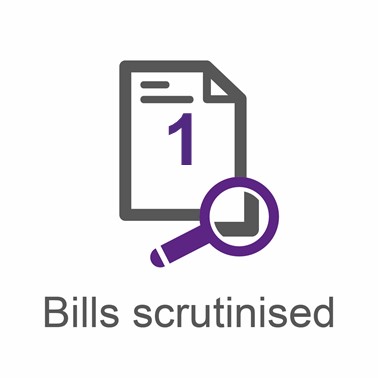
Scottish Local Government Elections (Candidacy Rights of Foreign Nationals) Bill
The Committee considered the Scottish Local Government Elections (Candidacy Right of Foreign Nationals) Bill, which was introduced by the Scottish Government to the Scottish Parliament on 7 February 2022. The purpose of the Bill was to "ensure compliance with UK Government treaty obligations in relation to candidacy for Scottish local government elections".
Following the introduction of the Bill, the Committee agreed to seek written evidence from the Electoral Commission and the Electoral Management Board for Scotland. The Committee also took oral evidence from the Minister for Parliamentary Business ("the Minister") on 3 March 2022.
The Committee published its Stage 1 report on 21 March 2022 and agreed with the general principles of the Bill. The Committee's full Stage 1 report can be read here.
The Committee considered Stage 2 of the Bill on 12 May. No amendments were lodged, and the Committee agreed to sections 1-4 and the long title of the Bill.
SSIs
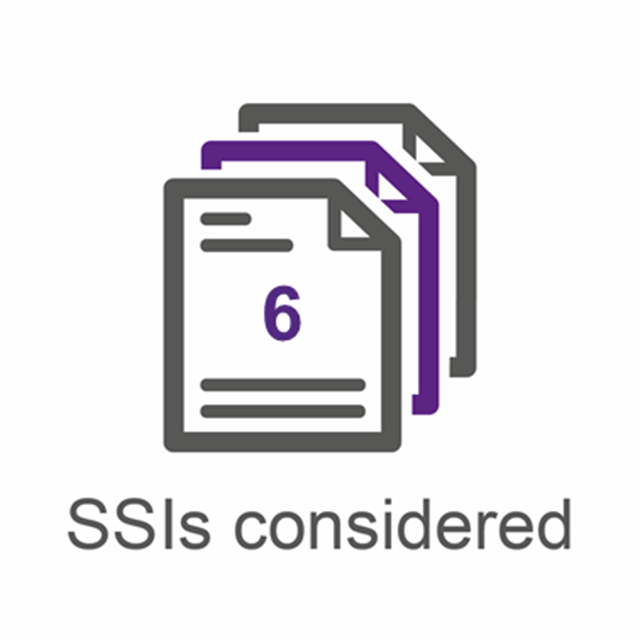
During the Parliamentary year, the Committee considered six Scottish Statutory Instruments (SSIs) four under the affirmative procedure and two under the negative procedure:
The draft Model Code of Conduct for Members of Devolved Public Bodies
The draft Representation of the People (Postal Voting for Local Government Elections) (Scotland) Amendment Regulations 2021
The draft Scottish Local Government Elections Amendment Order 2021
The Representation of the People (Variation of Limits of Candidates’ Local Government Election Expenses) (Scotland) Order 2021 [Negative]
The Representation of the People (Absent Voting at Local Government Elections) (Scotland) Amendment Regulations 2021 [Negative]
The draft Scottish Local Government Elections Amendment Order 2022.
Legislative Consent Memorandum
Legislative Consent Memorandum on the UK Elections Bill
At its meetings on 18 and 25 November 2021, the Committee took evidence and considered a legislative consent memorandum from the Scottish Government on the UK Elections Bill, which proposed a number of revisions to electoral legislation and practices.
The Committee took evidence from the following witnesses at its meeting on 18 November 2021:
Electoral Commission
Electoral Management Board for Scotland
Scottish Assessors Association
Dr Alistair Clark, University of Newcastle
Electoral Reform Society
Inclusion Scotland
Royal National Institute of Blind People
And on 25 November 2021 the Committee took evidence from:
George Adam MSP, Minister for Parliamentary Business, Scottish Government.
The Committee also received written evidence from the UK Minister of State for Levelling Up Communities, and the Minister of State for Equalities.
The Committee noted that the Scottish Government did not intend to lodge a Legislative Consent Motion in relation to the UK Elections Bill.
The majority of the Committee considered that legislative consent should not be provided to the provisions in the UK Elections Bill. The Committee welcomed the Scottish Government's commitment to consult on provisions for a Scottish Elections Bill which would take into account the views of relevant stakeholders in shaping the legislation. The Committee’s report is available here.
Equalities
During the Parliamentary year the Committee has mainstreamed equalities issues into its work. This was demonstrated most notably during the scrutiny of the Legislative Consent Memorandum of the UK Elections Bill where the Committee engaged with Inclusion Scotland and the Scottish Royal National Institute for Blind People
In addition, during the Parliamentary year the Committee identified Inclusion Scotland and the Scottish Youth Parliament as key stakeholders to engage with as part of its ongoing inquiry into Future Parliamentary Procedures and Practices.
Cross-Party Groups
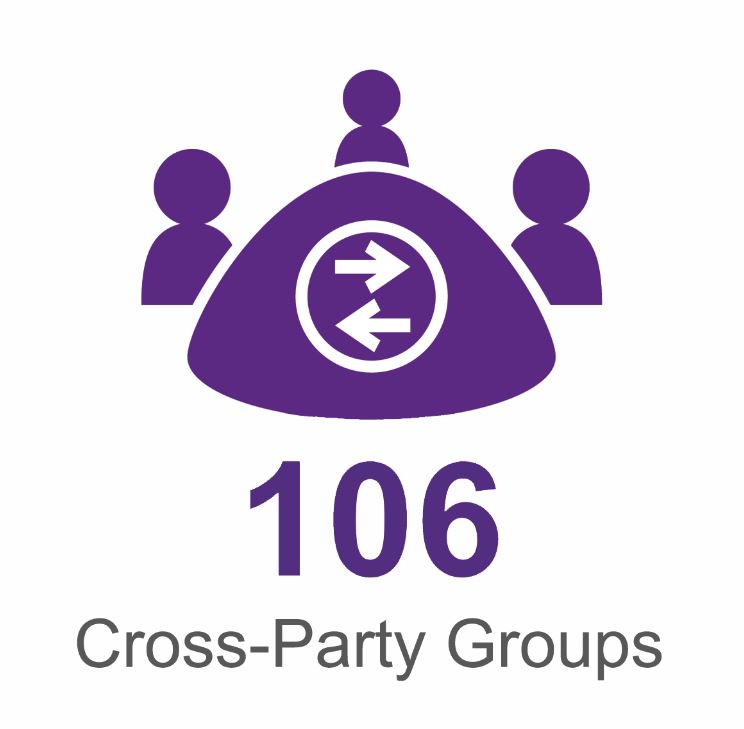
A total of 112 Cross-Party Groups have either been accorded recognition by the Committee in this parliamentary year or re-registered on the basis that they been recognised in a previous parliamentary session.
Meetings
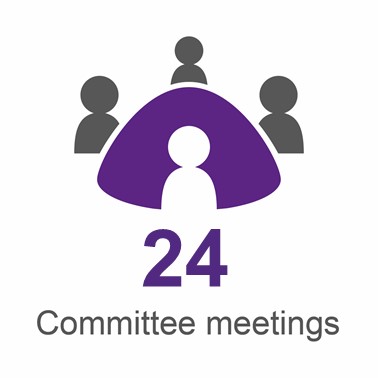
The Committee met 24 times during the parliamentary year. Five meetings were held entirely in private, two meetings were held entirely in public and 17 meetings included items in private
The items considered in private included the Committee's work programme, consideration of complaints, draft Committee reports and draft Standing Order rule changes.
This year, a total of 53 witnesses appeared before Committee.